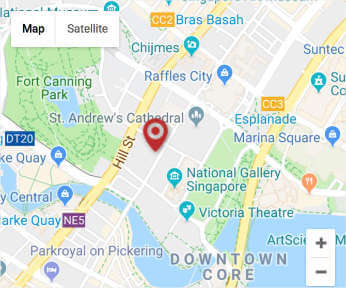Attractive Corporate Taxation Framework and Tax Incentive Schemes for Investors

Key Takeaways
- Tax Residency
- Headline Corporate Tax Rate of 17%
- No Tax Levied on Dividends
- No Tax Levied on Capital Gains
- Extensive Double Taxation Treaties
- Withholding Tax
- Attribution of Profits to Permanent Establishments (PEs)
- Tax Exemptions & Incentives
Tax Residency
For a company to be considered a tax resident in Singapore, we need to determine where its control and management is exercised. The residency status of a company may vary year to year depending on changes to this. Control and management are defined as the making of decisions on strategic matters relating to policy and strategy which usually takes place in the form of board meetings. Therefore, the location where this takes place is one key determining factor of control and management.
Another key factor in determining tax residency is whether at least one key management personnel (ie. C-Suite level, Director) is based in Singapore.
An important point to note about tax residency is that a company incorporated in Singapore is not automatically considered a tax resident of Singapore, and even if its day to day operations is in Singapore.
Headline Corporate Tax Rate of 17%
However, one should note that the headline corporate tax rate does not necessarily provide an accurate picture of the effective rate that a company incurs due to the various tax exemptions and incentives (discussed below).
Additionally, there are numerous industry-specific tax incentives that encourages investment and growth in certain sectors which companies can take advantage of.
No Tax Levied on Dividends
The exception to the above is if the dividends is paid out by a co-operative.
No Tax Levied on Capital Gains
Extensive Double Taxation Treaties
For countries that do not have DTAs with Singapore, companies may also apply for Unilateral Tax Credits (UTC) for all foreign-sourced income received in Singapore, subject to certain conditions.
Withholding Tax
When a non-resident company or individual receives a payment from a Singapore tax resident source, that payment is subjected to a Singapore withholding tax. The resident company must then pay the withholding tax to IRAS on behalf of the non-resident company of individual.
Common types of payments subjected to withholding tax include:
- Interests, commissions, fees or other related payments to loan or debt (15%)
- Royalty, rights of use, intellectual property (10%)
- Rent (15%)
- Management fees, services fees (prevailing corporate tax rate)
For items 1 to 3 above, the withholding tax rates would apply when the income is derived by the non-resident person through operations that are carried on outside of Singapore. This rate is to be applied on the gross payment and the resulting tax payable is a final tax. For situations when operations are carried out in Singapore, the following tax rates will apply on gross payments:
- Non-resident person (other than individuals): Prevailing corporate tax rate
- Non-resident individuals: 22% (20% for engagement period prior to 1 Jan 2016)
Attribution of Profits to Permanent Establishments (PEs)
Activities that are performed by a company in Singapore for its overseas related company may create for the overseas company a permanent establishment whose profits may be liable to tax in Singapore.
However, if the following conditions are met, there will be generally no tax liability for the overseas company as a result of the inter-company service arrangement.
- The Singapore company receives an arm’s length fee from overseas company
- Fees paid by overseas company complies with arm’s length principle with adequate transfer pricing documentation
- Overseas company does not perform any functions, use any assets, or assume any risks in Singapore
Tax Exemptions and Incentives
Tax Exemptions for Start-ups
To qualify for this tax exemption:
- The company must be incorporated in Singapore
- The company must be a tax resident in Singapore
- The company must not have more than 20 shareholders, or at least 1 individual shareholder is holding at least 10% of issued shares
- The company must not be an investment holding or property company
| Chargeable Income | % Exempted from Tax | Amount Exempted from Tax |
| First $100,000 | 75% | $75,000 |
| Next $100,000 | 50% | $50,000 |
| *maximum exemption for each YA is $125,000 | ||
Partial Tax Exemption
Tax Exemption on First $200,000 for YA2020 and after:
| Chargeable Income | % Exempted from Tax | Amount Exempted from Tax |
| First $100,000 | 75% | $75,000 |
| Next $190,000 | 50% | $95,000 |
| *maximum exemption for each YA is $102,500 | ||
Corporate Income Tax Rebates
CIT Rebate for YA2020 and after:
| Year of Assessment(YA) | Corporate Income Tax Rebate | Capped at |
| 2020 | 25% | $15,000 |
| *rebate does not apply to non-resident company subjected to final withholding tax | ||
| Chargeable Income (after exempt amount) | $500,000 |
| 17% Tax Payable |
$85,000 |
| Less: CIT Rebate ($85,000×25%, capped at $15,000) |
($15,000) |
| Net Tax Payable | $70,000 |
Group Relief
- Current year unutilised capital allowances
- Current year unutilised trade losses
- Current year unutilised donations
- Transferor and claimant companies must be incorporated in Singapore
- Transferor and claimant companies must belong to the same group
- Transferor and claimant companies must have the same financial year end
- Transferor and claimant companies must satisfy 75% ordinary shareholding level
Unutilised Items (Losses, Capital Allowances, and Donations)
Companies must satisfy the shareholding test to qualify whereby there is no substantial change in its shareholders and their shareholdings at the relevant dates.
Loss Carry-Back Relief for Unutilised Items
To further help businesses with their cash flow, an enhancement of this tax relief was announced during Budget 2020 as follows:
- Unutilised capital allowances and trade losses can be carried back from YA2020 up to three YAs immediately preceding YA2020 (instead of one YA)
- Companies may elect for the enhanced carry-back relief based on an estimate of current year unutilised capital allowances and trade losses for YA2020
- Maximum amount of qualifying deductions that can be carried back is $100,000
- Carry-back system available to all businesses, including sole proprietors and partnerships
- Companies have to satisfy the same substantial shareholding test and same business test discussed in “Unutilised Items (Losses, Capital Allowances, and Donations)”
Other Tax Incentives
| Incentive Scheme | Description | Tax Incentive |
| Pioneer Certificate Incentive (PC) | Companies from manufacturing or services sector that incurs significant capital expenditures resulting in leading edge technology or skill | Tax exemption on qualifying profits up to 15 years0 |
| Development & Expansion Incentive (DEI) | Encourages companies to grow and expand their business in Singapore | Reduced tax rate of 5% or 10% on incremental income from qualifying activities |
| Regional Headquarters Award (RHQ) / International Headquarters Award (IHQ) | The RHQ and IHQ schemes encourages companies to anchor their regional or international base in Singapore | Concessionary tax rates of 5%-15% on incremental income from qualifying activities |
| Double Tax Deduction for Internationalisation (DTDi) | Supports companies planning to expand in international markets | Up to 200% tax deduction on qualifying expenditure on international market expansion and investment development activities |
| Global Trader Programme (GTP) | Companies with qualifying trading income from physical trading, brokering of physical trades, trading in futures and derivative instruments may benefit from this scheme | Concessionary tax rates of 5%-10% on qualifying income |
World Most Competitive Economy
Singapore rise to the No1 spot was largely driven by the relative ease of setting up business, the availability of skilled labour and its cutting-edge technological infrastructure. The top 5 most competitiveness global economies after Singapore were Denmark, Switzerland, The Netherlands and Hong Kong.
| Economy | 2020 | 2019 |
| Singapore | 1 | 1 |
| Denmark | 2 | 8 |
| Switzerland | 3 | 4 |
| The Netherlands | 4 | 6 |
| Hong Kong | 5 |
2 |
| Sweden | 6 | 9 |
| Norway | 7 | 11 |
| Canada | 8 | 13 |
| United Arab Emirates | 9 | 5 |
| United States |
10 | 3 |
Easiest Place to do Business : Study
Asia
Singapore is in second place in a league table of ranking Asian economies on how easy it is to conduct business. A study by the TMF Group study 77 jurisdictions across the world looked at indicators such as legislation, accounting procedures, tax regimes and human resources rules.
Worldwide
The study put Singapore at 18 place, behind Hong Kong at 12 place. The top jurisdiction was Curacao, an island state that is part of the Netherlands, followed by the United States. The Index showed that Singapore’s strengths lie in its accounting and tax standards, which are aligned with international measures. It also provides clarity and relative ease in filing requirement. Singapore’s competitive corporate tax rate of 17 per cent and double tax agreements signed with over 80 countries also make it attractive to do business.
| World’s Top 20 Easiest Places to do Business | 2020 | 2019 |
| Curacao | 1 | 2 |
| United States | 2 | 11 |
| Jamaica | 3 | 40 |
| Denmark | 4 | 8 |
| British Virgin Islands | 5 |
9 |
| The Netherlands | 6 | 10 |
| El Salvador | 7 | 66 |
| Republic of Ireland | 8 | 44 |
| Cayman Islands | 9 | 1 |
| Mauritius | 10 | 15 |
| Dominican Republic | 11 | 14 |
| Hong Kong | 12 | 21 |
| Jersey | 13 | 3 |
| Chile | 14 | 37 |
| Israel | 15 | 6 |
| Switzerland | 16 | 7 |
| Malta | 17 | 28 |
| Singapore | 18 | 35 |
| New Zealand | 19 | 13 |
| Australia |
20 | 12 |
| Note: Methodology has been adjusted for this year index Source: TMF Group |
||
Featured photo by Luiz Centenaro on Unsplash
Related Services
Call Us Now
Corporate Secretarial /
Accounting / Tax
+65 6334-8791
(8.30am-5.30pm, Mon-Fri)
+65 9863-1270
(after office hour)
Fax: +65 6334-8075
Email: enquiry@jdt.com.sg
Address: 1 Coleman Street
#05-05 The Adelphi
Singapore 179803
Audit Assurance
+65 6837-0360
(9am-6pm, Mon-Fri)
+65 9863-1270
(after office hour)
Fax: +65 6837-0369
Email: enquiry@jdt.com.sg
Address: 1 Coleman Street
#05-16 The Adelphi
Singapore 179803

